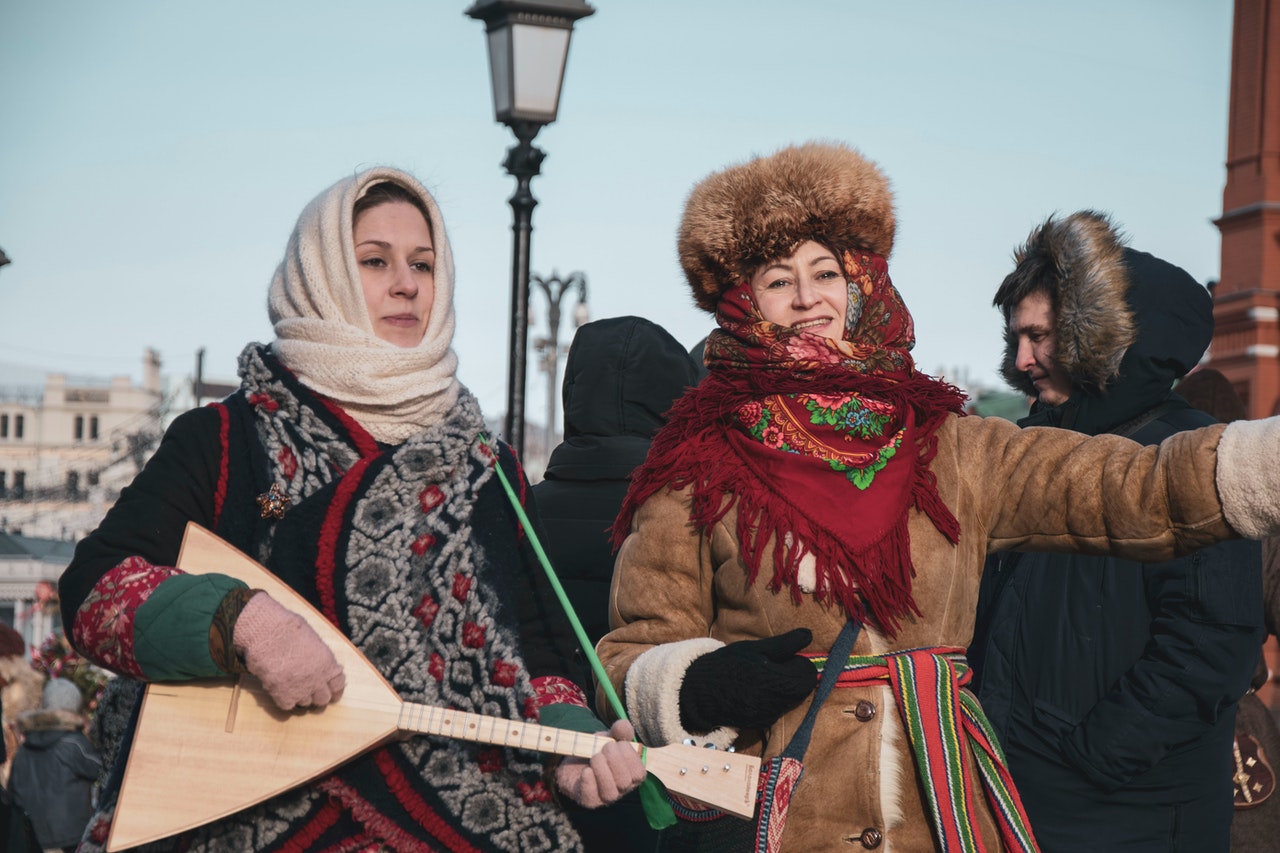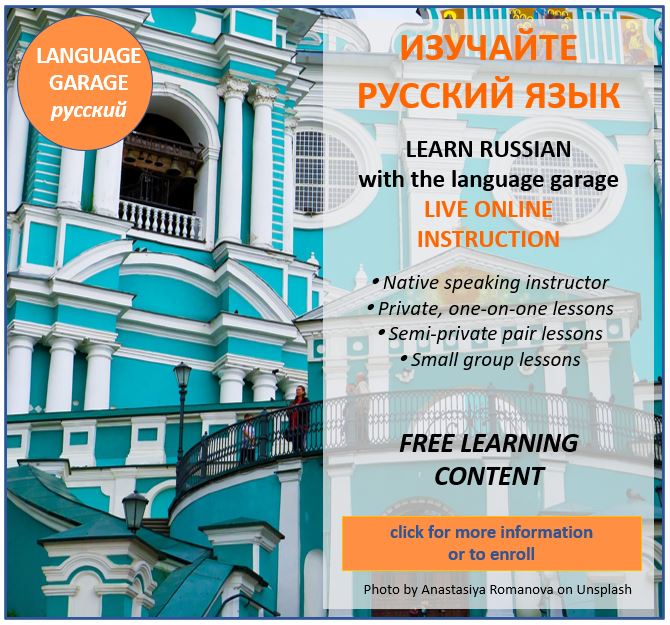Image: Aghyad Najjar on Pexels
In this post we’ll learn some basic Russian vocabulary and grammar that you can use to describe people.
Красивая! Beautiful!
Let’s start with some basic adjectives that you can use to describe people’s physical characteristics: высокий (m) /высокая (f) tall; невысокий (m) /невысокая (f) short; молодой (m) /молодая (f) young; старый (m) /старая (f) old; толстый (m) /толстая (f) fat; худой/худощавый (m) / худая/худощавая (f) thin; красивый (m) /красивая (f) beautiful; уродливый (m) /уродливая (f), безобразный (m) / безобразная (f) ugly. Let’s see some examples:
- Эта женщина высокая/ стройная.
The woman is tall/ thin. - Эти женщины высокие/ стройные.
The women are tall/thin. - Этот мужчина невысокий/ толстый.
The man is short/ fat. - Эти мужчины невысокие/ толстые.
The men are short/fat.
- Мой дедушка стар(ый).
My grandfather is old. - Моя бабушка стара(я).
My grandmother is old. - Этот мальчик/парень юн/молод.
The boy is young. - У нас (есть) маленький сын.
We have a young (little) son.
GRAMMAR TIP! Notice that there are two forms given for each adjective, masculine and feminine. If you’d like to see a summary of Russian adjective agreement, check out the tip at the end of the post.
Счастлив или грустен? Happy or Sad?
Now let’s see a few more adjectives that describe people’s moods or emotions or other non-physical characteristics: счастливый (m) /счастливая (f) happy; грустный (m) /грустная (f) sad; умный (m) / умная (f) intelligent; глупый/дурашливый (m) / глупая/дурашливая (f) foolish; интересный (m) / интересная (f) interesting; популярный (m) / популярная (f) popular; спортивный (m) /спортивная (f) sporty, athletic; ленивый (m) /ленивая (f) lazy; сильный (m) /сильная (f) strong; слабый (m) / слабая (f) weak; смелый (m) /смелая (f) brave; застенчивый (m) /застенчивая (f) shy; разговорчивый (m) /разговорчивая (f) talkative; тихий (m) /тихая (f) quiet; женатый (m) / замужняя (f) married; холостой (m) /незамужняя (f) single; дружелюбен (m) / дружелюбна (f)friendly, nice; недружелюбен (m) / недружелюбна (f) unfriendly, mean.
- Эта женщина умная.
The woman is intelligent. - Эти женщины умные.
The women are intelligent. - Этот мужчина сильный.
The man is strong. - Он – сильный человек.
He is a strong man. - Она – сильная женщина.
She is a strong woman. - Эти мужчины сильные.
The men are strong. - Моя сестра дружелюбна/ недружелюбна.
My sister is friendly/ unfriendly. - Мой брат дружелюбен/ недружелюбен.
My brother is friendly/mean. - Эта девочка застенчива.
The girl is shy. - Наши дочери/дочки застенчивы.
Our daughters are shy. - Ты счастлив(а) или грустен/грустна/расстроен(а)?
Are you happy or sad? - Наш учитель очень интересен.
Our teacher is interesting. - Она – популярная певица.
She’s a popular singer. - Этот полицейский смел.
The police officer is brave.
GRAMMAR TIP! Adjective Agreement
Remember that adjectives in Russian agree with the noun that they describe by taking different endings. Take the adjective высокий (tall) as an example. Depending on the noun it’s describing, it can be in the masculine singular (высокий), the feminine singular (высокая), the neuter singular (высокое), or the plural (высокие).
- высокий мужчина a tall man
- высокая женщина a tall woman
- высокое здание a tall building
- высокие мужчины / женщины / здания tall men/women/buildings
These are just the nominative forms. Adjectives, just like nouns, also decline for case. For example if you make these phrases the direct object, you need the accusative form. And of course one of the other cases in other circumstances.
- Я вижу высокого мужчину. I see a tall man.
- Я вижу высокую женщину. I see a tall woman.
- Я вижу высокое здание. I see a tall building.
- Я вижу высоких мужчин / женщин, высокие здания. I see tall men/women, buildings.
There are different types of adjectives, with slightly different endings, and sometimes it matters whether the noun is animate or inanimate; note the different plural endings in the last example above. But in a nutshell, when you use adjectives in Russian, you need to know the gender (masculine, feminine, or neuter), number (singular or plural), and case (nominative, accusative, genitive, dative, instrumental, prepositional) of the noun being modified.
Another thing that you’ll see in Russian is that a lot of adjectives have long and short forms. The short form is limited in use; typically only simple statements where English uses is/are. This use is always in the nominative case.
- молодой мальчик a young boy
- Мальчик молод. The boy is young.
- старуха женщина an old woman
- Женщина стара. The woman is old.
Do you want to learn Russian?
Check out our other posts on Russian language, culture, and more. And if you’re looking for convenient and affordable live Russian lessons with a real teacher, check out The Language Garage Russian. Our lessons are given online in a virtual classroom, so it doesn’t matter where you live or work. We can come to you. And we have flexible options, with a free trial so that you can decide if there’s a fit. Check us out!





